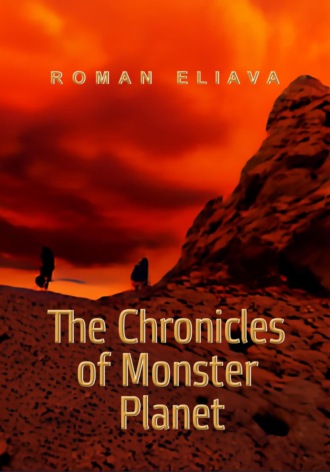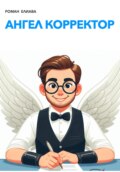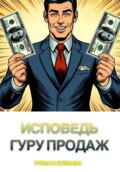
Роман Елиава
The Chronicles of Monster Planet
Day 1
Imagine your arm numbed after a night's sleep. Then you wake up and fresh, oxygen-rich blood rushes through the arteries again. You know the feeling, don’t you? I’m sure you do. Anyway, when you emerge from a state of deep conservation, you feel something very similar, but on a much greater scale. It's pins and needles from head to toe, your eyes feel to be popping out of their sockets, and instant death, in that moment, seems a rather acceptable way out. But, like everything under the sun, deconservation eventually comes to an end. The system scrupulously purges the cells of substances that previously slowed down their vital functions nearly to a halt. Throughout the process, the blood is repeatedly pumped through a variety of filters. At the same time, delicate needles inject chemical reagents to all parts of the body. And then the moment comes when your widely open eyes regain their ability to focus, and the brain begins to think, albeit not very straight at first.
My vision cleared, and I immediately realized what was going on. It was just like the last time. Only the first time was a test-run. Doctors had to check how well we could tolerate deep conservation.
Meanwhile, the needles retracted back into the capsule, and the bed activated its pneumatic massage function. I stared through the transparent lid of the capsule, failing to understand why the ceiling was so high. My memory returned quickly. Has something gone wrong? Have they discontinued the project? The capsule lid clicked and parted. I took hold of its edges and sat down, looking around.
“All right, another one woke up,” said a gaunt balding man in a white hoodie. His accent was unfamiliar.
Then I saw Ji Cheng sitting nearby in a capsule just like mine. Just like the rest of us, Cheng – our team's astrophysicist – was wearing a jumpsuit with a large United Nations emblem on the sleeve. Her calm, emotionless face never provided any clues as to what she was thinking.
“Who are you?” I asked the gaunt man.
“Dr. Stein, Thomas Stein,” he replied. And, judging by the inscription on the capsule, you are Maximilian Gauthier.”
“That's right, call me Max. It didn’t work out, did it?”
“What didn’t work out?” he asked, confused.
“The flight,” I said, examining the room. It was small, about three meters high and housed our five capsules along with some other – possibly medical – equipment, which I could not identify at a glance. In any case, we were definitely not aboard our ship, the Hope.
Another capsule opened up with a characteristic click, and I recognized Lisa Small, our radio engineer and co-pilot, endowed with a bright appearance and equally brilliant mind.
“Lisa Small, there you are,” Thomas Stein greeted the girl, peering into a cluster of displays which, as I just noticed, was connected to our capsules.
“Where are we?” Lisa inquired, turning her petite nose in my direction.
“Something is probably wrong with the ship, so they must have postponed the flight,” I shrugged.
Two capsules opened at once, and we saw the surprised face of John Finn, our captain, and the dour expression belonging to our biologist and surgeon, Boris Leonov. Finn promptly climbed out of his capsule and got straight down to business.
“Why was the flight postponed?” he asked Dr. Stein.
“I'm only the doctor,” he replied, and I noticed his strange (possibly, German) accent again.
The door opened, and a small chestnut-haired woman with sharp facial features and attentive brown eyes entered the room.
“You'll get your answers later, but not from me,” the doctor continued. “Ah, this is my assistant, Sheila Hill, she'll show you to your rooms. Take a couple of hours' rest, then we'll get together again and have someone answer your questions. Excuse me, I have lots of data to process regarding your condition. Conservation is a complex and unconventional procedure.”
I got out of the capsule, Small and Cheng did the same. I felt quite normal now. Leonov was still sitting, he was clearly interested in Stein's equipment.
“What's this?” he asked. “Why was the Toshiba analyzer replaced?”
“I repeat, all questions will be answered later,” Thomas Stein replied. “I have work to do. Treat the situation professionally.”
“Boris, get up,” Finn said. “We’ll figure everything out soon enough.”
With an exaggerated grunt, Leonov got out of the capsule and joined the group.
“Please, follow me,” Sheila Hill pointed at the door.
Finn looked at us, then left the room. I made way for Lisa and Ji, then followed. Leonov hesitated, trying to take a closer look at the medical equipment.
There was nothing remarkable in the corridor, except for a huge blond man with short-cropped hair. He was standing against the wall, powerful arms crossed over his chest. The blond wore a uniform, but not an astronaut uniform. He was in khaki fatigues, and there was a holster on his belt.
“Well, I just knew the flight would be cancelled,” said Leonov, as if expressing my own thoughts. “Terrorists blew up the ship, right?”
“It’s not what you think,” our guide informed.
“Then what?” Finn asked.
“Listen,” Sheila replied, “you'll find out soon enough, but not from me. So for now, just follow me.”
She led us down a concrete corridor lit with halogen lamps or something of the sort. Two separate lines of bundled wires – electrical and optical cables— were laid along the wall. A metal staircase led us to a lower floor. I noticed that the doors were sealed with massive airtight gates coming out of the walls.
The lower floor featured an identical corridor, although this one had doors along the right wall. These were compartments, rooms. However, they rather reminded me of prison cells. Dr. Hill showed each of us to our own room.
“Have a rest, I'll come for you in two hours.”
The tall beefy blond with the gun stationed himself in the corridor, further supporting my associations with prison. Sheila caught my eye.
“That's Werner. Should you need anything, just ask him.”
I nodded, although Werner seemed useful for only two purposes: moving something heavy or sending someone to a better world.
Having entered my compartment, I kicked off my shoes and dropped to the bed. I didn't feel well after the conservation. There was nothing special about the room: a bed, a table, two chairs, a shower and a toilet. According to my estimates, the room measured roughly ten square feet.
Well, it seems that our mission failed for some reason. Now we are probably at a military base. Though, it doesn’t really look like a boot camp. I wonder if the flight has been postponed or completely canceled. What happened? Julia will be happy, I thought, recalling my girlfriend's face. Although I made it clear to her that my goal was to fly.
On my last visit to Washington, we met at a café on Massachusetts Avenue. I had to get my paperwork done, and she already knew I was leaving. I couldn't even stay the night with her, as my orders required getting back to Houston in the evening. She shed some tears. It was our last date.
“Max, why won't you change your mind? My parents are willing to give us their second house. With your outstanding education, you can find a job anywhere. You know, you could work as my father's deputy.”
“Listen, we've been over this so many times already. I’ve spent years of my life and a ton of money to get on the crew. It was a sheer stroke of luck that the primary candidate broke his arm. Don’t you understand?! My whole life has been leading up to this flight. And when they told me I qualified only as a backup crew member… and then this chance…” I continued after a pause. “Do you really want me to throw it all away?”
“But you're not coming back, are you?” she asked, choking back tears.
“No. It's a one-way ticket. But I was honest about that when we first met, and I think it played an important role in what we had. You've always been flattered to be an astronaut's girlfriend, haven't you? Making your friends go green with envy.”
“I always thought you'd stay. I never thought it was serious. And, like you said, you… you were just a backup.”
She started crying again. But I wasn't thinking about her anymore. I was re-living that elation I felt when I found out that Alan broke his shoulder during hockey practice. There I was, standing still, gazing upon a monument to the first astronaut, Yuri Gagarin, but my thoughts were far away in the sky. I will fly, I will be there, I will become one of the first settlers on another planet. Out of billions of people, I was one of the lucky five.
But now… I shrugged away the memories, the picture changed. It’s over. Cancelled. What if we don't fly anywhere at all? So much time, money and hopes wasted. The Hope. That was the name of our ship. It was an allegory, the hope of humanity. Our planet was almost irreversibly destroyed, and we could not prevent its further deterioration. So-called presidents and prime ministers of developed countries paid lip service to environmental protection, participated in various congresses and public organizations, but all of them still remained miserable slaves of private capital, which was bleeding the planet dry. Oil, natural gas, shale gas, open-pit mining, deep-sea mining, carbon dioxide emissions, greenhouse effect, ozone holes, endless wars and much more. The planet was dying and there was a part of society that understood this very well. Among those were some very rich and influential people who managed to push the corruption-riddled United Nations into arranging an international space expedition.
Our expedition became possible only after the Pullman-Anderson drive was created. Based on the Pullman effect, the Anderson Design Bureau managed to develop a uniquely fast sub-light drive.
Our mission was to gather intelligence. To land on a designated Earth-type exoplanet, send the Hope back home and wait for the Ark, a new larger ship with settlers, which had just entered the design stage at the time of our launch. The Hope was essentially a large house that could be detached from the carrier and work autonomously on nuclear power for hundreds of years. We were to confirm that the planet was, in fact, habitable.
Our target planet was located more than a hundred light years from Earth, thus, induced suspended animation – deep conservation – was required. The DC machines developed at that time were tested on us. Time was precious.
Nearly two hundred years in a capsule with an artificially maintained microclimate, including pressure to simulate gravity. That's what we had to endure. Then it was either “new Earth” – or not. The latter option was not a pleasant one.
According to the scientists, it was highly likely that the planet would be similar to Earth. It was discovered a long time ago with the help of NASA's Kepler telescope. The telescope operated from 2009 to 2013 and made it possible to discover over three thousand exoplanets. Planets outside the Solar System. And the very first exoplanet was discovered at the end of the twentieth century, orbiting the orange subgiant Gamma Cephei A. Our destination star was also orange, although it was a dwarf. It was located in the Vela constellation, the largest star of which was nicknamed after astronaut Roger Chaffee.
Thus, our goal was a planet orbiting an orange dwarf. To be clear, an orange dwarf is a cross between a red dwarf and a yellow dwarf like the Sun. Something in between in terms of luminosity and size. That orange dwarf was seven tenths the size of the Sun, yet had the same luminosity. Possibly, there were other bodies in orbit around it, but only one was confirmed by the Kepler telescope. The planet was solid – in contrast to gaseous ones; there are four such planets in the Solar System. The planet was about one and a half times the size of Earth, and it was closer to its star than Earth is to the Sun, but within the habitable zone. The planet had an atmosphere and presumably water on its surface.
After several years of heated debate, the scientists selected it from a rather long list of candidates. The list included about three hundred planets in our galaxy, the Milky Way. Some of them were rejected due to qualitative characteristics, others – due to their remoteness. Our spiral galaxy is about one hundred thousand light years or zero point six quintillion miles in diameter. Can you imagine that? I can't. The Solar System is closer to the edge of the galaxy, at a distance of two-thirds of its radius from the center. That being said, the closest star is four light years from the Sun, while the farthest systems are about eighty or ninety thousand light years away.
The concentration of stars, and likewise, of planets, is higher in the center of the galaxy – for instance, in the Sagittarius constellation. If we could explore planet after planet, like in science fiction novels, we would fly there. But in reality, we could only fly along the route from point A to point B. Moreover, the crew was in a suspended animation state during the flight, so it was the automatic systems of the ship that controlled everything. The flight plan was as follows: the ship takes off from Earth via a launch vehicle. The Pullman-Anderson drive is activated in orbit, sending the ship along its course toward the stars. The ship then enters the orbit of the orange dwarf planet and detaches the housing and research modules. These modules descend to the surface with astronauts on board. In a month or less, at our command, the Hope was supposed to take a reverse course and bring the research data and information we had transmitted from the surface back to Earth. In any case, we, the Hope crew, would not live long enough to see the second ship. In addition, the chance that the ship would safely reach the planet and return back was significantly lower than the chance of the planet being similar to Earth.
Memories and thoughts raced through my mind, then turned into fragmentary colored spots, and I fell asleep without even realizing it.
I woke to the sound of an opening door and rubbed my eyes. Sheila, who had not bothered to knock, was standing at the doorstep.
“It's time,” she said, and walked on.
I put on my shoes, splashed some cold water on my face and went out to the corridor. Everyone was already there. Apart from the expected fatigue, their faces showed discontent. We, astronauts, have never been treated this way. I stole a glance at Werner, it seemed that this whole time not only had he been standing in the same spot, but he’d also remained completely motionless.
“Follow me,” Sheila Hill commanded rather than asked.
We followed her in single file. I looked back and saw Werner trailing us like a shadow. This time we reached the door of a large freight elevator. There were twenty buttons on the elevator panel, the first floor button at the top. This means that we are underground, I concluded. Perhaps a military base? But why would they drag us here? I didn't notice which button Dr. Hill pressed. My attention was focused on my own face in the elevator mirror – it was as gloomy as the other crew members', with black circles under the eyes. I caught Werner's gaze in the mirror.
“Fell in love already?” I quipped. “Sorry, babe, I'm straight through and through.”
My joke fell flat, not a muscle flinched on Werner's face. Only Sheila cast a disapproving glance in my direction. I shrugged. The elevator stopped, and the doors opened.
The corridor in front of us was flooded with light. Its walls and ceiling were covered with decorative panels, most likely made of foam plastic. We proceeded to the left toward glass doors. When Sheila reached the door, she let us go ahead, then entered herself. Werner stayed outside. It was a conference room, somewhat similar to a small lecture hall at a university. Judging by its height, it occupied two floors of the underground facility.
The room housed metal-framed tables arranged in rows.
“Please sit down,” said the man at the lecturer's desk.
There were two people sitting there. The one who spoke and a balding man of about forty-five, who seemed vaguely familiar.
I sat in the second row. Boris took a seat next to me.
“I think terrorists blew up the ship, and we are in prison. They are looking for accomplices among the crew,” he whispered confidentially in my ear.
This was complete nonsense for sure, but I didn't exactly like Werner and his gun. Why was he here? Well, there's no use in guessing, so I just listened.
The first man – in his fifties with gray hair and short gray mustache – got up and began to speak.
“I would like to explain what happened to you, and it will be easier if you refrain from any comments for a while,” the man said, instead of what normally should have been a greeting. “This way I'll be able to tell you everything without getting swamped with premature questions. Okay?”
We all nodded with interest. He isn't going to torture anyone yet, I thought and looked at Boris. Apparently, the peaceful beginning did not convince him at all.
“First of all, let me introduce myself,” the mustachioed man continued. “My name is Edward Trevor, the commandant of this base. This is my deputy, Alex Bush,” he pointed to the man next to him. “You already know Dr. Hill and Dr. Stein. And this is our security chief, Vincent Taney,” he introduced the man just entering the room.
“Sorry for being late, I was busy,” Taney said, taking a seat. “Go on, Ed.”
I didn't like this new person, another camouflaged guy. Slender build. About thirty years old. Dark slicked back hair.
“Now, after all introductions, let's proceed to the matter at hand. I would like to congratulate you on a successful arrival and welcome you to the Terra Nova planet on behalf of all colonists living at this base.”
Saying that my jaw dropped in surprise after his words would fail to describe the true extent of my astonishment. I turned my head and saw that my fellow astronauts felt the same – they looked as if competing for the world's most surprised expression. As befits a commander, Finn was the first to come to his senses.
“It can't be true. Is that some kind of a sick joke? Was the flight canceled?”
We shouted in support of our commander, asking the same questions all at once. Trevor raised his hand for silence.
“Yes, you heard it right. It's hard to believe. But it is true.”
“But how?” Finn asked.
“Your flight was a very long one. Almost two hundred years. A lot of things happened during this time. The most important of them occurred on Earth ten years after you left it. A way to move through the Droescher-Heim space was invented, that is, the ability to puncture conventional space in order to travel faster than light.
We fell silent.
“You had a Pullman-Anderson sub-light drive leveraging the Pullman effect. But puncturing space is instantaneous, all you need is an enormous amount of energy,” he cleared his throat.
I think all of us just sat there for a while – confused, with our jaws dropped.
“You see,” the speaker continued, “a new expedition was arranged and sent to Terra Nova. It reached the planet one hundred and thirty years before you did. Do you understand?”
We kept silent. I finally closed my mouth and heard Boris grunt incredulously next to me.
“The colonists reported that the planet is habitable, but humans can't breathe the local atmosphere. Which means modified atmosphere is required to establish bases here,” he paused.
“But a new problem arose,” Trevor continued. “The planet is inhabited. It is inhabited by an aggressive life form showing vestiges of intelligence. And these creatures have an advantage. It is their home world. These monsters wiped out the colonists from the first expedition. And from the next one too. We are descendants of the third colonization wave. This,” he made a circular motion, “is the third human base on this planet.”
“Were there other expeditions?” Finn asked.
Trevor shook his head and answered, “Communication with Earth is lost. We don't have enough power for a hyperspace puncture. And there have been no ships from Earth in the last fifty years.”
The hall sank into a deathly silence. Everyone was gripped by foreboding thoughts about the fate of their home planet, as well as relatives and friends back there. About humanity as a civilization.
“How many people do you have here?” Lisa asked.
“Twenty-eight,” Trevor replied. “Thirty-three, counting you.”
“Not enough. An almost extinct population,” Leonov commented.
“We know,” Taney looked at him. “And it grows even smaller as we continue to fight the indigenous life forms.”
The news was quite shocking. My thoughts were racing back and forth between the flight and the incomprehensible situation here, I could not concentrate on anything. But then the smartest member of our team, a winner of the Abel Prize in mathematics, Ji Cheng, spoke.
“You’ve said that the first expedition arrived a hundred and thirty years before us. But if the drive was built ten years after our departure, then the expedition should have arrived one hundred and sixty-nine years before us, because a hyperspace flight from Earth to this planet takes twenty-one years,” she said and looked at her watch.
Trevor and Bush exchanged glances. To be honest, I didn't understand how she had arrived to this conclusion.
“I said that the drive was invented, not built. The project took several decades to implement. Are you satisfied? Any other questions?” Trevor asked with displeasure when Cheng nodded.
“I'd like to examine the medical part of the base,” Boris requested.
“Yes, sure, but all in good time,” Trevor raised his hands reassuringly. “Let's have a meal first. Sheila will show you to the mess hall. Then we'll assign you stations at the base according to your professional skills.”
“And the locals? What are they?” I asked, unexpectedly for myself.
“The indigenous life forms – monsters, as we call them – are the dominant species of this planet. Their intelligence is not very developed, but they show animalistic ferocity and are quite cunning. You will have plenty of opportunities to see them. You'll see enough of them to make you sick, believe me,” Bush replied. “What else?”
We kept silent, so Finn expressed his willingness to have a meal.
“Before you leave,” Taney got up from his seat, “take these bracelets. They act as wireless passes that grant you access to the base compartments.”
“We can't go everywhere, can we?” Finn asked.
“Not until you get to know the base better. Actually, it is for your own good. There are quite many dangerous areas here.”
Sheila was our guide again, we followed her – but not until we took the bracelets from Vincent Taney's hands.
“What are they hiding from us?” the Russian doctor whispered in my ear.
“You do have a penchant for distrust, don't you, Boris?” I said, dismissing his suspicions.
“Mark my words!” he noted pointedly, his eyes flashing fire, but I was already ahead of him.
Boris hurried after me. I wanted to catch up with Cheng and have a word with her, but suddenly I ran into a charming blue-eyed brunette. Her graceful figure distracted me from the Chinese specialist and serious questions.
“Aren't you a power engineer from the Hope?” she asked in a deep, velvety voice.
“That would be me. How can I help such a beautiful lady?”
“How nice of you to say that!”
“It's a family trait,” I smiled my most enticing smile.
“I'm Anna Ericsson, an engineer at this base,” the girl held out her hand. “It's a pleasure to make your acquaintance.”
Her handshake was warm and firm. And suddenly I felt like drowning in those big, sensual eyes of hers. The reverie was broken by a metallic sound of Cheng's bracelet falling on the immaculately polished floor. Anna and I looked at her at once. But she didn't notice dropping the bracelet or our stares. Ji was looking at her watch intently. She's calculating something again, I thought. But what? She clearly doesn't like something about this place. Is something wrong with time? If only I had known back then what I know now! On the other hand, maybe it wouldn't have changed anything.
“Hey, Ji,” I called out to the astrophysicist.
“Ah?” she shuddered. “Everything's fine.”
She picked up the bracelet and hurried after Sheila to the mess hall. But it made me think. The unbalanced and overly suspicious Russian is one thing, but the extremely preoccupied Chinese astrophysicist is something completely different – I have never seen such strong emotion on her face before. That's something to consider.
“If you're going to the mess hall, I can keep you company,” Anna distracted me from my confused thoughts again.
The mess hall was a fairly large room, which could easily accommodate at least a hundred people. Now it seemed empty. As we entered, I caught several curious looks from a few people sitting there. No wonder, I thought. We are probably the most interesting event in their lives. But, then again, maybe not, recalling what Trevor had said about the local species. It would be interesting to see them. Besides, what are we supposed to do now? Our mission has lost its purpose.
A dark-skinned man, whose appearance evoked thoughts of vegetarian cuisine, came to serve us food. His black eyes with bright whites, which created a stark contrast with his dark skin, shifted from one crew member to another.
“This is our cook, Raheem Khaji,” Dr. Hill said.
“I hope his meals aren’t quite as sour as his face,” another attempt of mine to lighten the mood with a joke, again failed, inevitably triggering Sheila's displeased stare.
Despite expectations, our lunch, dinner, or whatever meal of the day it was, included meat. We had chicken. Just a small portion, accompanied with some sort of boiled grass. In addition, we had porridge and tea, which, judging by the particles floating in it, had been made from the same grass as the side dish. Well, Terra Nova is anything but a gourmet paradise, I thought, picking at the gelatinous puree with a spoon. Anna came over with her tray and took a seat opposite me.
“Do you find our food unusual?”
“Compared to the nutrient solution pumped into my body for the last two hundred years, it's just ambrosia,” I replied and recklessly put a spoonful of the puree in my mouth.
The puree was expectedly tasteless, but it made the girl smile.
“What was the food like back on Earth?” she asked. “I heard there was some sort of a delicacy, oyster. Obviously, I've never tried it.”
“Well, it’s something like a sea worm in a shell. I've never liked oysters, they are highly overrated. I'd rather have a well-done steak with a glass of chilled wine.”
“A worm? Yuck!” Anna looked at me incredulously. “You are kidding, aren't you?”
“No. Why is he following us?” I pointed my spoon at Werner, who stayed at the entrance.
“Trevor probably asked him to keep an eye on you to prevent accidents. You're new to the base and MP.”
“What's MP?”
“You are definitely new here. It's what we call this world. Monster Planet, MP for short.”
“And the locals, what are they like?” I asked, sipping the unexpectedly good tea.
The girl closed up at once.
“Is something wrong?” I was already sorry that I had asked the question. Our relationship with this lovely girl was off to a good start and might blossom into something bigger. Although two hundred years in a capsule could have a negative effect on my body, I thought uneasily.
“They are aggressive, bad,” Anna replied. “They kill us. They must be exterminated.”
“Wow, such thirst for blood!” I pointedly raised my eyebrow in surprise.
“When your friends are murdered, the blood of your enemies seems – how did you put it? – like ambrosia.”
I chose not to say anything. Perhaps she had the right to say that, who knows.
“Are they really intelligent?” I asked instead.
“Yes and no.”
“What do you mean?”
“They are organized, social, but at the same time incapable of creative thinking. Many of their actions are instinctive, genetically coded, I believe. Like ants. I can't provide more details, I'm not a biologist.”
“But have you seen them?”
“Yes, unfortunately,” a grimace of disgust distorted Anna's pretty features. “I hope never to see them again.”
It was Finn who distracted me from the conversation.
“Max, get up. We have to get together and discuss the situation.”
“Anna, excuse me. It was very nice talking to you,” I said to the girl, standing up, “I hope we'll continue next time?”
“Absolutely,” the girl smiled, leaving her seat.
“You, French folks, just never change,” Finn commented, watching her go. “But we do have a lot to discuss, so let's meet at my place.”
A quarter of an hour later, after a short stay in my own compartment, I arrived at the commander's room. I came second after Boris and perched on the bed. Finn took a stool, while Leonov was sitting on a chair next to him. They looked like conspirators. The Russian astronaut was saying something, but stopped as I entered.
“I think we should present your theory to Max,” the commander told the biologist.
“What theory?” I asked, looking at my crew-mates.
“Boris thinks we haven't left Earth,” John continued.
“An interesting idea,” I remarked, looking at the frowning biologist. “Are there any arguments to support it?”
“Just open your eyes! Does it look like a space base to you?” Leonov rattled on. “And this tall story about new drives just doesn't hold water. Only a naive Asian could fall for such nonsense.”
He was obviously referring to Ji Cheng.
“Well, everything seems logical,” I noted, standing up for our astrophysicist.
“Oh, really?” the biologist threw up his hands, his sunken eyes darting nervously from me to Finn and back again. “I'm telling you, they're doing an experiment on us. Just like the flight to Mars! Do you remember? When they just locked up the crew on Earth.”
“But the participants knew it was staged,” the commander intervened.
“That's it. That's right,” Leonov quickly interrupted him. “They knew it, but we don't. Why? We've got to find an answer to this question. Why are they experimenting on us?”
“I think you're crazy,” I told him bluntly. “Some side effect of the conservation maybe.”







